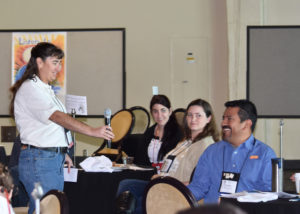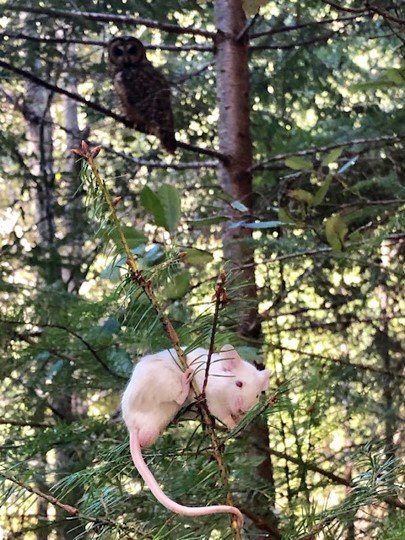BYO Breakfast Roundtable

- Daily, Monday-Friday
- 8:00 to 10:00am
- All are welcome and encouraged to participate, included with meeting registration fee (no pre-registration or extra fee required)
The conference is virtual this year and so are the Breakfast Roundtables! These morning sessions are an opportunity for you to start your day with an interactive and engaging conversation, delving deeply into the conference theme. Each morning we will gather and break into small groups for facilitated discussions, exploring a different facet of “Conservation in Challenging Times.” So BYO Breakfast and join us for stimulating conversation!
The Roundtable sessions are open to all conference attendees, no pre-registration or extra fee required. Each session may be approached as a standalone conversation, so you may participate in as few or as many as you like, but they also are a progressive conversation exploring our conference theme. No prior knowledge or experience is required, all conference attendees are welcome and encouraged to participate. The more diverse the participation, the more diverse the conversation!
We will start the week with a discussion on Monday morning centered around how the increasingly polarized and politicized world has influenced our ability to engage in wildlife conservation and what actions we may take. Then Tuesday, Wednesday, and Thursday we will delve more deeply into a few of these themes. We will start each session with a brief introduction to the topic and what to expect participating in a Zoom-based Breakfast Roundtable. Monday through Thursday we will utilize breakout rooms to facilitate small group conversation (6-8 people), then bring everyone back together to share outcomes and ideas. Each day will be facilitated in a different manner; we may shuffle the breakout rooms in a modified World Cafe approach. Friday we will continue our tradition of concluding with “Conference Conversations”, setting up breakout rooms for participants to choose their “seat” and move between rooms at their leisure to wrap up the week sharing great things learned, celebrating the amazing science, amusing observations, and everything in between. We hope you will join us!
Monday: In an increasingly polarized and politicized world…
-
How do external challenges (science denial, systemic racism, disregard for public health orders/officials, pandemic, etc.) influence our ability to be successful wildlife conservationists?
-
What needs to be done to bring people from different perspectives together?
-
What steps do we need to take internally (Western Section, our Chapters, TWS) and what can we do to help externally (our communities, our country, the world)?
Tuesday:
-
How do we establish a culture of forward progress in wildlife policy in light of changing government administrations?
-
How do we find common ground between external opposing viewpoints? What actions can we take so that common ground drives policy rather than shifts in leadership, which often overturn progress?
Wednesday:
-
What are the trade-offs between the impacts of continued use of fossil fuels and the development of the renewable energy industry on wildlife and their habitats?
-
What can we do in our roles as wildlife professionals to promote adoption and enforcement of reasonable thresholds and encourage advancements in technology to meet this need?
Thursday:
-
How has COVID affected people’s perception and use of natural lands and connection with wildlife?
-
What are the pros and cons of the increased use, and sometimes overuse, of public spaces?
-
What are the obstacles and opportunities it has presented for us, as wildlifers, particularly through the lens of our land ethic?
-
How do we learn from these to address the obstacles and embrace the opportunities moving forward?
-
Friday:
-
Conference Conversations – Questions will range from silly observations to serious reflections on the science learned during the week.

